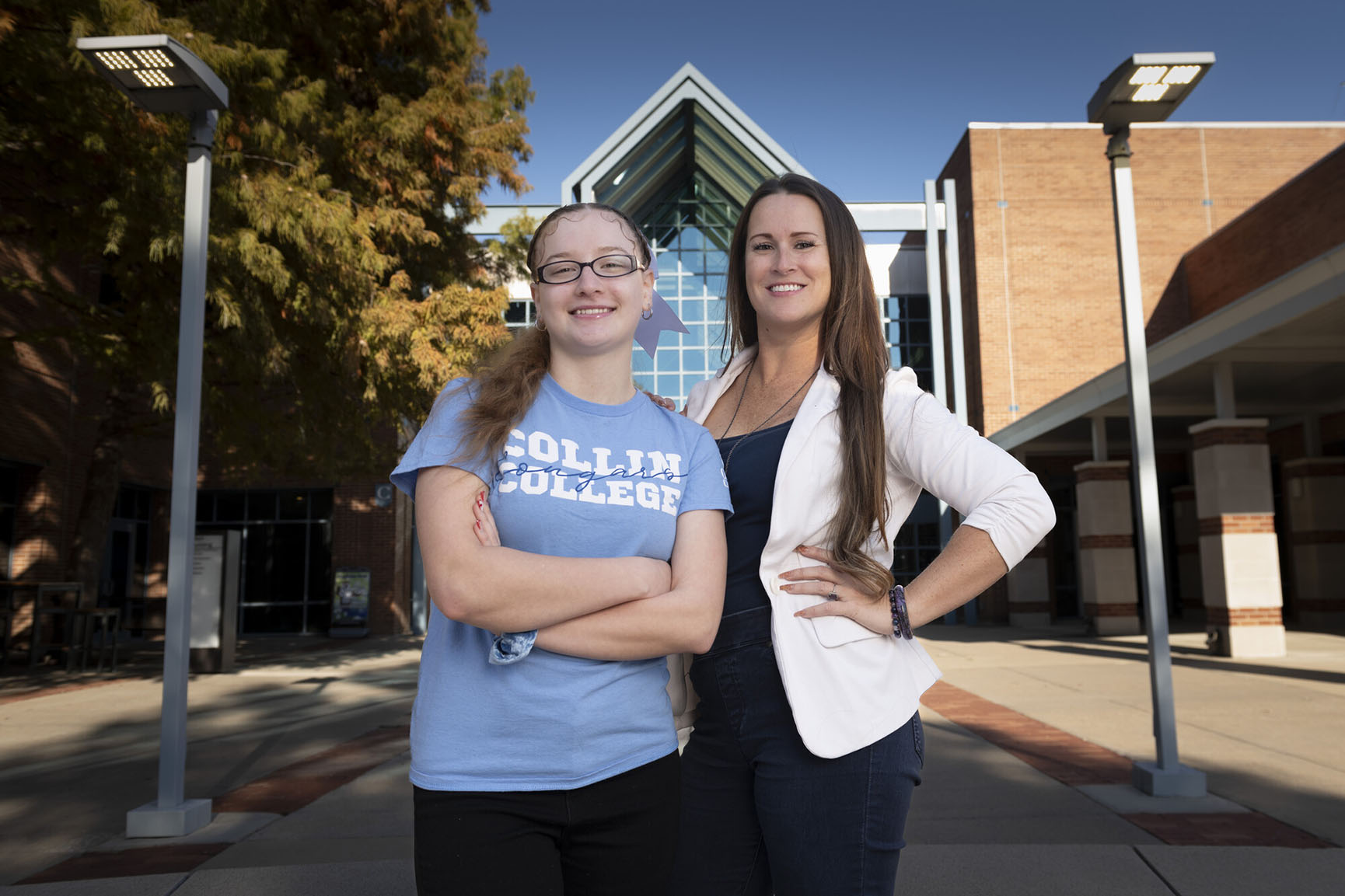Fostering Success helps former foster students reach their goals
March 01, 2025
Cougar News

Jordan’a Jordan wants to make a difference in people’s lives, so she is completing her prerequisites on a path to earn a nursing degree.
“I know what it’s like to face challenges, and that understanding strengthens my commitment to a career where I can support and advocate for those in need,” Jordan said. “My experiences drive me to make a difference in others’ lives through nursing.”
Jordan is one of 100-160 students who come to Collin College each year after involvement with the foster care system in Texas. While the state of Texas offers tuition waivers to adopted and foster youths who have aged out of the foster care system, these students often come to college without a strong support network.
That support can be vital for college students navigating a new system, so the college’s Fostering Success program works to fill that void. Volunteer committee members provide assistance with registration and financial aid, general guidance, and direction on seeking other support services. A small group of Fostering Success committee members positioned at multiple Collin College campuses reach out to the students regularly so that they know someone cares about their educational goals.
The support given by Fostering Success can take many forms.
Fostering Success committee member Tanya Schildknecht, an advisor with disability services, said that the students can face financial instability, mental health challenges, lack family support, and may have difficulty tracking down education records.
“There are so many challenges that many of us take for granted,” Schildknecht said. “Something as simple as navigating the application process can be challenging without support.”
Susan Karlsen, the college’s foster care liaison and a financial aid advisor, noted that the students she works with have often missed a considerable amount of time in school because of state-mandated meetings with case workers, advocates, doctors, family members, and others.
“They are disadvantaged in that way because they get pulled out of school constantly, and it’s nothing that they can help,” Karlsen said.
Karlsen works with local high schools to identify students who might come to Collin College and to educate high school counselors about the tuition waiver benefits available to students aging out of foster care.
However, the tuition waiver is only one component of success for these students. Only about 3% of students nationwide who use tuition waivers similar to Texas’ complete their degree.
Transportation, housing, utilities, educational materials, and other necessities can
place additional burdens on these students who
have little support from family to help defray the expenses.
So, Fostering Success works with partners such as International Student Foundation and Foster Love, nonprofit organizations dedicated to helping students meet needs that the tuition waiver does not cover, allowing them to focus on earning their educations.
The Fostering Success Excellence Fund, offered through the Collin College Foundation, can also help cover non-tuition costs when students meet specific requirements. Supported by community donors, the fund helps pick up where the waivers leave off.
No matter how it happens, Fostering Success committee members like Karlsen want to see more students with these special circumstances reach their dreams of a college education.
When Jordan graduates from Collin College, she plans to pay her success forward.
“The Fostering Success program has been such a wonderful support for me in so many
ways,” Jordan said. “The program has given me the confidence and resources I need
to keep moving forward with a sense of hope and purpose.”
Learn more about the Fostering Success program at www.collin.edu/financialaid/fostercareresources.html.
Learn more about the Fostering Success Excellence Fund by contacting the Collin College Foundation at 972.599.3145.
Back to Newsroom
